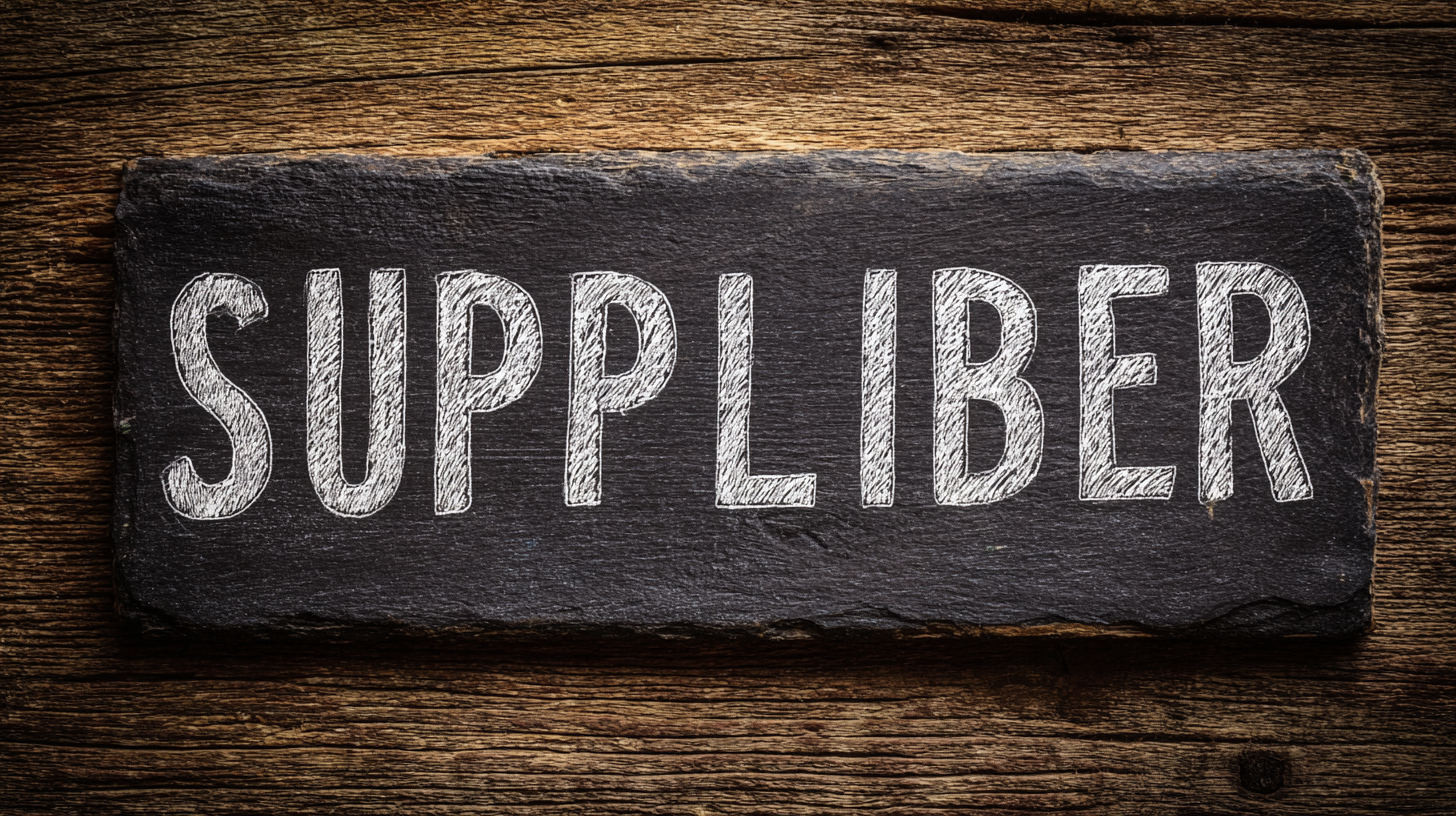
How to Identify the Best Supplier: A Comprehensive Comparison for Informed Businesses
 In the fast-paced world of business, choosing the right supplier is crucial for maintaining a competitive edge. A reliable supplier not only ensures the quality and consistency of products but also significantly impacts the overall efficiency of operations. To make an informed decision, businesses must navigate an array of factors, including industry production standards, digital integration, and the specific needs of their unique market.
This blog aims to provide a comprehensive comparison of effective strategies for identifying the best supplier. By examining key reasons why certain suppliers excel in meeting industry benchmarks and leveraging digital tools, we empower businesses to forge strong partnerships that align with their goals. Ultimately, understanding these critical elements will facilitate more informed choices, leading to enhanced productivity and sustainable growth.
In the fast-paced world of business, choosing the right supplier is crucial for maintaining a competitive edge. A reliable supplier not only ensures the quality and consistency of products but also significantly impacts the overall efficiency of operations. To make an informed decision, businesses must navigate an array of factors, including industry production standards, digital integration, and the specific needs of their unique market.
This blog aims to provide a comprehensive comparison of effective strategies for identifying the best supplier. By examining key reasons why certain suppliers excel in meeting industry benchmarks and leveraging digital tools, we empower businesses to forge strong partnerships that align with their goals. Ultimately, understanding these critical elements will facilitate more informed choices, leading to enhanced productivity and sustainable growth.
Key Characteristics to Look for in a High-Quality Supplier
Identifying a high-quality supplier is essential for businesses aiming to thrive in today’s competitive environment. Key characteristics to look for include a commitment to innovation, the ability to adapt to new technologies, and a strong understanding of market dynamics. As China emphasizes the development of "new type productive forces", it highlights the importance of integrating cutting-edge technology with industry practices, which is a vital consideration when selecting suppliers.
When evaluating potential suppliers, consider their track record in quality assurance and responsiveness to market demands. Suppliers that embody innovative capabilities are likely to align with your business needs and support sustainable growth.
Tips: Always request references and case studies to assess their performance in real-world applications. Additionally, evaluate their technological capabilities—suppliers adept at leveraging new technologies can drive efficiencies in your operations, ensuring you stay ahead in a rapidly evolving market landscape. Be sure to also gauge their flexibility in adjusting to future changes, as a supplier's adaptability is crucial in responding to shifting business requirements.
Evaluating Supplier Credentials: Certifications and Industry Standards
When evaluating potential suppliers, certifications and industry standards play a crucial role in ensuring you choose a reputable partner. Suppliers with recognized certifications, such as ISO 9001 for quality management or ISO 14001 for environmental management, demonstrate their commitment to maintaining high operational standards. These credentials not only enhance a supplier's credibility but also assure businesses that they meet industry-specific requirements.

Additionally, industry standards vary by sector, making it essential to understand which certifications are critical for your specific needs. For instance, a food supplier should comply with food safety guidelines like HACCP or FDA standards. Identifying these standards early on can streamline your selection process and mitigate risks related to compliance issues.
Tip: Develop a checklist of required certifications and standards tailored to your industry to ensure a thorough evaluation of potential suppliers. This proactive step will aid in making informed decisions, ultimately leading to successful business partnerships.
Analyzing Supplier Reputation: Reviews, References, and Experience
When seeking the best supplier for your business, analyzing supplier reputation is a critical step. Begin by gathering reviews from multiple platforms, paying attention to patterns in the feedback. Positive reviews can indicate reliability and quality, while negative ones may highlight potential red flags.

Tip: Always verify the authenticity of reviews. Reach out directly to previous clients if possible, to gauge their experiences more thoroughly. This not only helps you understand the supplier's operational practices but also their responsiveness to issues.
In addition to online reviews, references can provide deep insights into a supplier’s capabilities. Request references from the supplier and ask specific questions about their performance, such as punctuality and customer service. Experience in your industry is also essential; a seasoned supplier will likely understand the specific challenges and requirements you face.
Tip: Look for suppliers who demonstrate a history of adaptability and innovation. Their willingness to evolve alongside market trends can be an invaluable asset for your business.
Comparative Pricing Strategies: Finding Value Without Compromising Quality
In today's competitive market, identifying the best supplier involves not only assessing product quality but also understanding the intricacies of pricing strategies. Effective pricing serves as a core element that can significantly impact consumer perceptions and purchasing decisions. Businesses must explore various pricing approaches to find the right balance that maximizes value without sacrificing quality. For instance, employing strategies such as penetration pricing can attract customers with lower initial prices, while value-based pricing ensures that products are perceived as worth their cost due to their unique features or benefits.
Moreover, companies can benefit from a comparative analysis of these strategies to determine which resonates best with their target audience. In 2025, businesses should prioritize adaptability in their pricing tactics, considering factors like market trends and consumer behavior. By doing so, they can remain competitive and responsive, enhancing their overall market presence. Through strategic pricing, businesses not only foster loyalty among existing customers but also attract new ones, ultimately solidifying their position in the industry.
Effective Communication and Responsiveness: Signs of a Reliable Supplier
When seeking to identify the best supplier for your business needs, effective communication and responsiveness are critical indicators of reliability. According to a report by the Council of Supply Chain Management Professionals (CSCMP), companies that prioritize strong supplier communication experience a 25% reduction in supply chain disruptions. This highlights the importance of selecting suppliers who not only deliver on time but also maintain open lines of communication, enabling you to address any concerns swiftly.
**Tips for Evaluation:** When interviewing potential suppliers, assess their communication style. A responsive supplier will often have a dedicated point of contact who is readily available to answer your questions. Pay attention to their reaction times; a company that takes longer than 24 hours to reply can indicate potential delays in the future.
In addition, a reliable supplier should demonstrate a proactive attitude toward problem-solving. According to a study by Dun & Bradstreet, 80% of businesses consider a supplier's ability to proactively communicate about potential issues a sign of dependability. Use this as a benchmark when evaluating your supplier options. Look for those who not only wait for queries but also provide regular updates and insights about their processes and any relevant market changes. A supplier who engages in meaningful dialogue will ultimately contribute to a more resilient and effective partnership.
